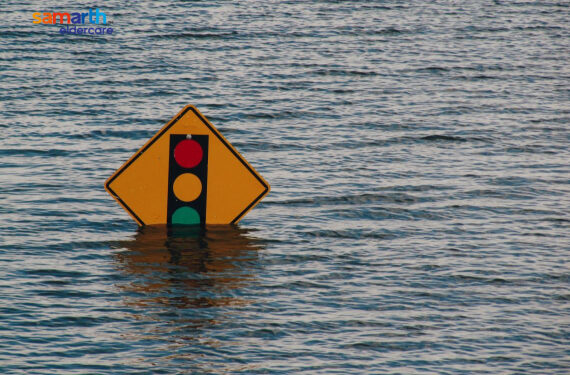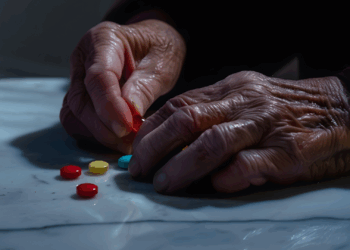Disasters, natural or man-made, can put everyone in their path at risk. Whether it’s a fire, flood, earthquake or storm, being prepared for it can increase your odds of survival.
As a senior, one is even more vulnerable considering any special needs or limited physical mobility. This is why it is all the more important to take steps to prepare for an emergency beforehand. Here are five tips that can help seniors and their caregivers stay prepared for a disaster
Make a medical plan

Join Now >
In the event of a disaster, you may not have immediate access to a medical facility or even a pharmacy. If you or your loved ones take medication or receive regular medical treatment such as dialysis, chemotherapy or even physiotherapy — talk to your doctor about an emergency backup plan.
Keep an up-to-date file of the medical history, including doctors, prescriptions and dosages. Ensure there is a copy of the same in your disaster kit and that a family member or a good friend has a copy too. Also, ensure you have a first aid kit handy and maintain a stock of medicines that one may need regularly.
Prepare a disaster kit
In case you have to evacuate or are trapped without any medical assistance, a disaster kit can be a lifesaver. The idea behind the kit is to have enough supplies to be comfortable and safe until emergency services can provide assistance.
Ensure there is food and water to last for at least 72 hours. Use a handy bag to store items necessary for specific needs, such as eyeglasses, glucometer, hearing aid batteries, and more. Also, keep a copy of important documents such as ID cards, health insurance cards, medical records, and contact information of your family and friends. Throwing in some cash is also a great idea, as, in some disasters, it may not be feasible to go to the bank or ATM to withdraw money.
Prepare your home
While it may not possible to prepare your home for every probable disaster, there are definitely some general changes and improvements that can be incorporated to help mitigate the damage at some level. Think about all that could go wrong when a disaster strikes and plan accordingly.
Are you worried about a fire breaking out in your home? Ensure that you have a smoke alarm, water sprinklers and a fire extinguisher or two around your house. Do you live in a flood-prone area? Ensure that all your electrical components are elevated, and your walls are water resistant. If you or you’re loved one relies on electricity for health reasons, purchase a generator as power backup in case of outages.
Get insured
A disaster can end up destroying the home that you have so lovingly built and/or leave you medically compromised. With an effective insurance strategy in place, you can recover and bounce back from a disaster without straining your pockets or your bank balance. Insurance can also help compensate for any lost earnings due to a disaster.
If you own your home, getting it insured is the first step. So, even if a fire or a flood ravages your house, you are covered. Before getting a policy, please read the fine print and pay special attention to liability coverage.
Plan for an evacuation
When a disaster strikes, there are times you may have to evacuate your home. In such cases, one needs to be prepared for the same. If you or your loved one has mobility issues or needs assistance to move around, it is important to identify a friend, neighbour, or family member who will be responsible for transportation.
Also, keep contact information for emergency services handy so that you can reach out to them for more information on evacuation procedures.
While these measures will ensure you are prepared when disaster strikes, staying calm is also crucial. In case of an earthquake, take cover under a heavy table or bed if you are indoors and stay away from windows and cabinets that can topple over. If you are outside, stay out of the way of tall buildings and trees. During floods, disconnect all electric appliances and if there is time, move your essentials to higher ground. In case of a fire, shut off the gas and place a wet towel under the door if you are trapped inside.








